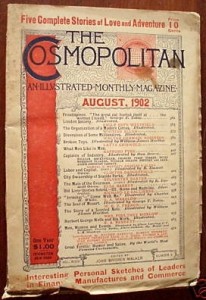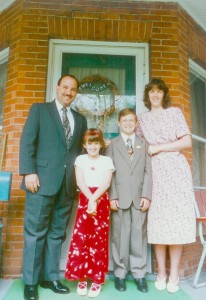Regardless of what you think, you really are the same person at home that you are at work. One persona may be more “masked” than the other, but you are the same person.
Why? You are one person, not two. You are ultimately the same man, both on the job with your colleagues and at home with your wife and children. You cannot live two disparate lives; you will ultimately be known as the same person in both spheres of influence. That may scare you a bit. And I hope it is at the very least a sobering thought.
 The downside of that reality is that if you are a despicable person at home, you will ultimately show yourself to be the same at work. And the greater shame is that many men would be more embarrassed to be considered despicable at work than at home.
The downside of that reality is that if you are a despicable person at home, you will ultimately show yourself to be the same at work. And the greater shame is that many men would be more embarrassed to be considered despicable at work than at home.
Men who are weak and ineffective fathers tend to try to split their lives between work and family. They try to live their lives in two separate worlds. That is, they live as producers at work but consumers at home. On the job they dedicate their powers to serious, responsible activity; but at home they rest passively in pleasurable recreation. In the workplace, their character strengths operate at full throttle and everyone sees and respects their sound judgment, sense of responsibility, tough-minded perseverance, and self-control. But at home, their inner strengths that are so active at work, rest on idle, set aside for use during the day, and thereby hidden from their children’s eyes.
Successful fathers do not live like this. They are smart, effective leaders at home as well as on the job. Their strengths of character impress their children as much as their colleagues at work. Their devotion to their family, in fact, gives meaning and purpose to their strenuous life of professional work. The main purpose of their work is the welfare of their family, and their children know this.
In other words, a successful father exercises leadership at home as much as on the job — and he does so in very similar ways.
What does this mean? Let’s first look at how a man typically exercises effective leadership in the workplace, and then let’s turn to see how the same attitudes and behaviors apply to leadership at home.
Click here to read the rest of the article »


















